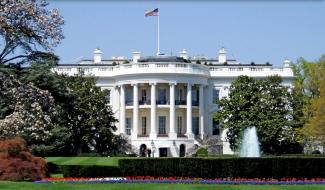
How Much Power Does the President Really Have Over The Economy?
By Preston Rosamond
As we get closer to the 2020 election, we’re hearing more about everything from international relations to immigration to, of course, the economy. Economic policies are common campaigning platforms for all parties, and this year is no different. We’re seeing promises to decrease unemployment, cut taxes, increase GDP, and so forth. Not surprisingly, these promises are immensely attractive to voters.
This election season, candidates’ promises in regards to the economy are more rampant than ever. As the coronavirus pandemic causes market volatility around the globe and we face historic unemployment numbers, both presidential candidates want to assure voters their plans for the economy are well in hand.
But an important question remains: How much power does the President have over the economy? Will their plans really make a difference?
Presidential Economic Power
Well, the short answer is: It depends. Presidents are usually awarded praise or denounced as failures depending on the state of the economy during their tenure in the Oval Office. But the economy is a complex, many-faceted system, and the President has more influence over some aspects of the economy than others.
In reality, the President doesn’t have much control over the stock market (although the choices they make can certainly have effects on investor confidence and market performance). But how the market is performing at the beginning or end of a President’s term in office isn’t necessarily reflective of their choices. It may have more to do with the naturally occurring cyclical nature of market performance.
Common powers the President does have include (but are not limited to):
- Proposing fiscal and regulatory policy
- Appointing Federal Reserve governors
- Responding to external shocks and crises
Fiscal and Regulatory Policy
Upon entering office, the President steers fiscal and regulatory policy. The tax and regulatory policies they propose, if passed by Congress, have major effects not only on how citizens are taxed but also on how businesses are taxed and regulated. For example, President Trump’s Tax Cuts and Jobs Act of 2017 lowered income tax rates for most people, increasing spending power and boosting savings and investments. It also lowered the corporate tax rate from 35% to 21% to promote job creation and business reinvestment.
Additionally, the President oversees regulatory policy, which aims to strike a balance between efficiency and equity. Regulatory policies limit what can be done in the marketplace to protect vulnerable consumers, and applies to many industries, such as finance, manufacturing, and energy sectors. Typically, deregulation is better for businesses, as less regulation frees up resources they can use for more productive goals, thus boosting the economy.
Federal Reserve
The Federal Reserve (more commonly known as the Fed) is an independent agency from the federal government that provides the nation with financial stability and flexibility. In addition to supervising banks and other financial institutions, the Federal Reserve oversees monetary policy, which can involve governing interest rates (among other things) to achieve macroeconomic policy objectives.
Although the Fed is an independent agency, the President appoints the seven members of the Board of Governors. Their terms are meant to be staggered and can last up to 14 years to maintain independence from the Oval Office. Of these seven members, the President also nominates the chair and vice-chair for the Federal Reserve. The President’s appointees work to fulfill the President’s goals for national employment, price stability, and financial stability.
External Shocks and Crises
The President is also responsible for making economic decisions in response to external shocks and crises. The President’s response to the current COVID-19 crisis provides an illustrative example. The global pandemic has jolted national economies around the world and affected American citizens across all income levels. The President is responsible for signing stimulus packages into law, which he did on March 27 with the CARES Act. This stimulus package offered economic assistance to American individuals, families, and businesses. Other external shocks that might require the President to respond economically include oil price wars, natural disasters, and warfare.
Financial Planning in Uncertain Times
Ultimately, any President’s tangible influence over the economy is uncertain and difficult to prove. The economy is driven by many complex factors, and policies implemented in earlier presidential terms can have long-term, far-reaching effects that current economists may not realize in short-term analyses.
Whatever questions you might have, we can help you answer them. At The Rosamond Financial Group, we are serious about our job of stewarding our clients’ finances well, and part of that stewardship involves continually educating ourselves and you about relevant economic changes. If you’d like to feel more secure about your financial and retirement plans, consider partnering with a financial advisor who takes your full financial situation into account, current economic environment included. To get started, book a free introductory meeting online!
About Preston
Preston Rosamond is a financial advisor and the founder of The Rosamond Financial Group Wealth Management, LLC with nearly two decades of industry experience. He provides comprehensive wealth management and financial services to individuals, professionals, and families who enjoy simplicity and seek a professional to help them pursue their goals. Preston personally serves his clients with an individual touch and a sincere heart, and his servant’s attitude is evident from the moment you meet him. Learn more about Preston or start the conversation about your finances with him by emailing smrosamond@rosamondfinancialgroup.com or schedule a call with our online calendar.

